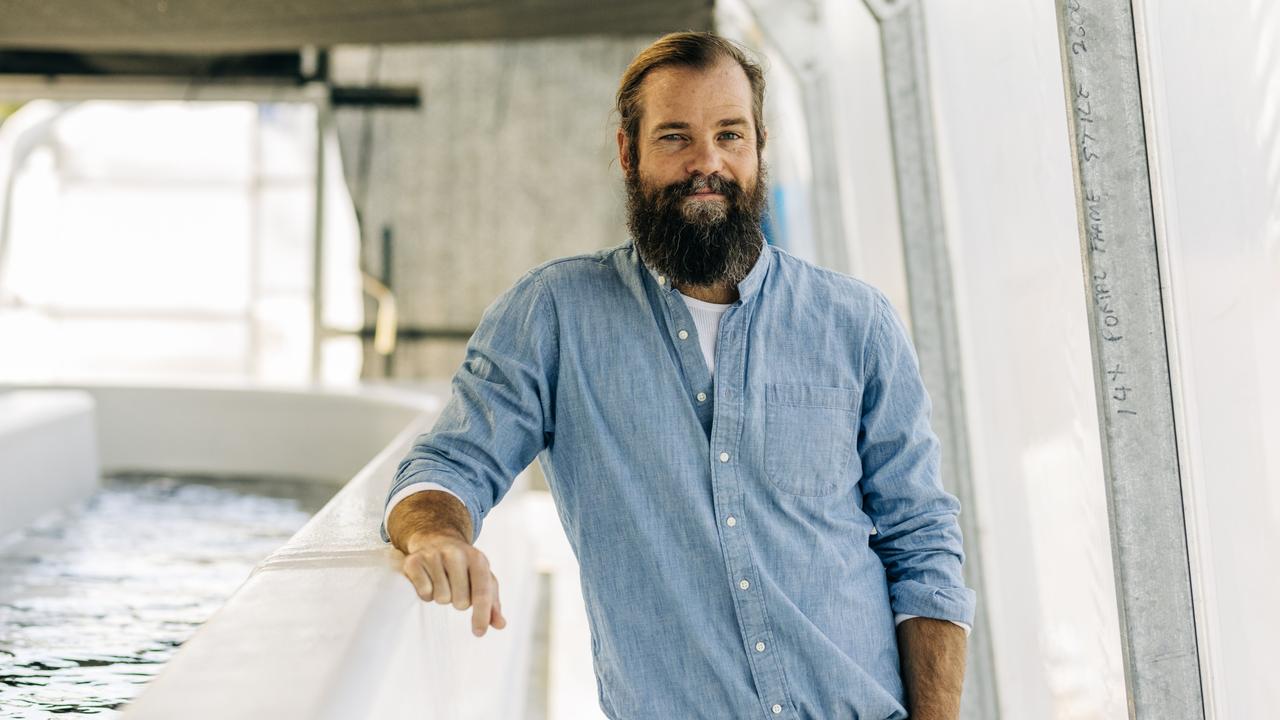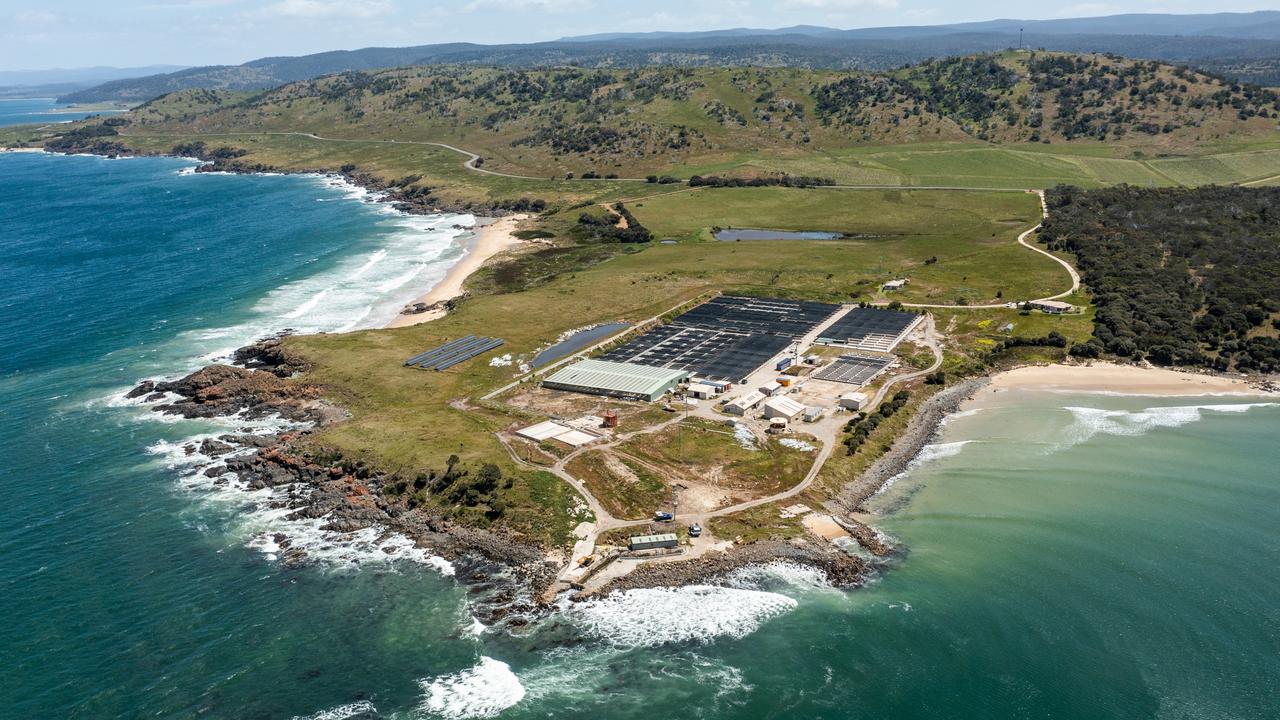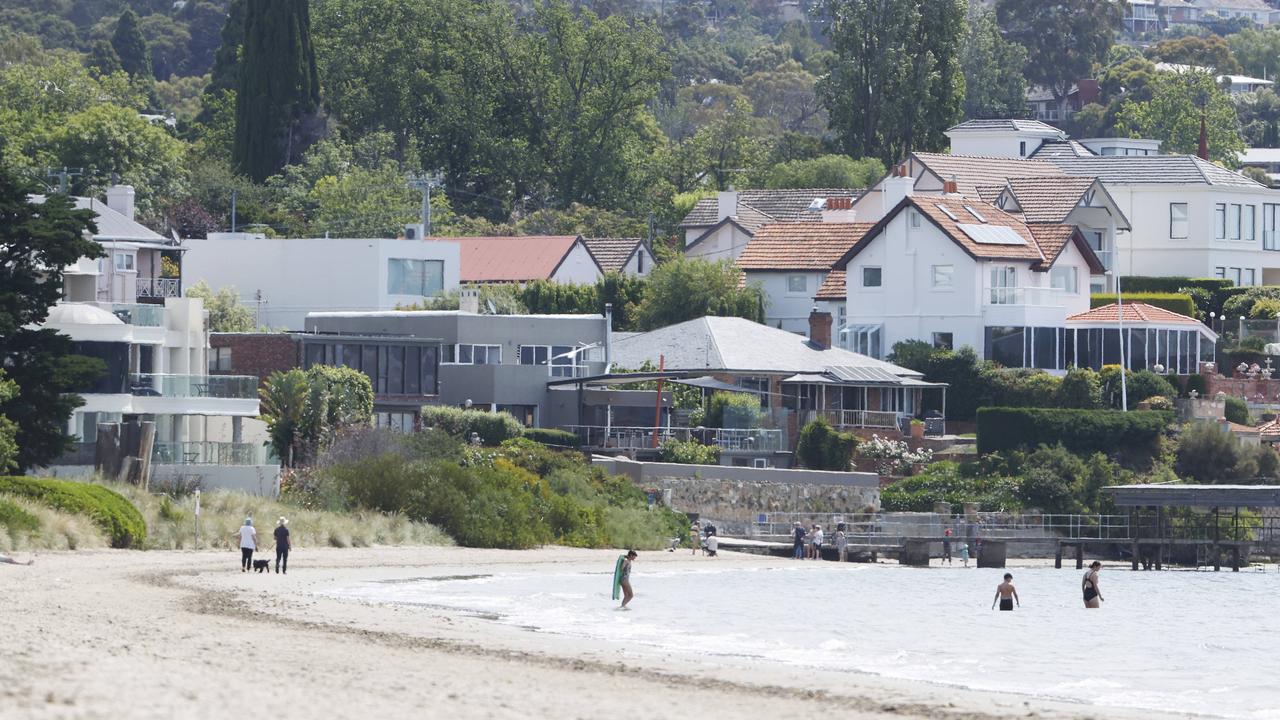Sea Forest CEO Sam Elsom on challenges of pioneering a new industry on Tasmania’s East Coast
FREE READ: Sea Forest is one of the nation’s most exciting new companies – and it’s already providing 55 local jobs. But while the business is thriving, it isn’t without teething problems.

Pioneering a new industry in a small regional Tasmanian town has been an exciting journey for Sam Elsom – but it hasn’t come without growing pains.
Sea Forest, which is based at Triabunna but also has operations at Swansea, produces a feed supplement made from asparagopsis seaweed, which, when fed to livestock, can reduce their methane emissions by up to 98 per cent.
Mr Elsom, the company’s chief executive, said Sea Forest now employed about 55 people, including scientists, engineers, animal nutritionists, marine farmers, and human resource professionals.
“I think one of the things when you’re … [starting] a new industry is that we are writing … the handbook on how you do every activity,” he said. “And there’s not necessarily a large pool of people that you can recruit from.”

“They don’t come with those skills – we’re training people mostly so they’re developing those skills and they can be from the local community, which is what we try to preference and employ people from the town … but then in some cases bringing in the best people, [when] we have to relocate them, we do face some challenges.”
Mr Elsom said the relative lack of services on the East Coast sometimes proved to be an obstacle to progress for the business.
“Attracting the best-in-class is definitely a challenge in that when we’re inviting people to join the company, they’re very much excited by the prospect of what they will be working on and the outcomes from their efforts … from an environmental standpoint or for agriculture,” he said.

“But [there is] the reality of moving to a small town with constraints on housing, the access to supportive services – schooling, a doctor.”
Mr Elsom said there had been instances where the company had itself been forced to rent properties for employees to live in.
“We’ve definitely had a housing shortage,” he said. “Particularly when you talk about Orford [near Triabunna], it’s a town where a lot of people have shacks and they’re Airbnb-ing out those shacks.”
However, the Sea Forest boss has been careful not to point the finger at the state government for the company’s teething problems, accepting that “we’re a new business that’s scaling rapidly”.

“I think in time … it’s only natural that [additional] services will come online,” Mr Elsom said. “Because I guess we’re pioneering this very exciting new and environmentally positive industry that will have significant economic benefits for the farmers not only in Tasmania but in Australia.”
“And with that will [come] more jobs through more trials and more of the commercialisation that will also create more jobs. And these jobs will be in regional areas.

“And as this industry grows and as people gravitate toward the towns that are supporting these industries, schools and education will improve, the access to things like medical professionals will also improve, as well.”
Food manufacturer Mondelez Australia, which employs about 480 people across its Tasmanian sites and runs the Cadbury’s Chocolate Factory at Claremont, has also acknowledged occasional difficulties in attracting and retaining workers.

Ben Wicks, the company’s vice president – marketing, said it was sometimes hard to recruit people with “highly specialised” skills, such as project engineers and health, safety and environmental roles.
More Coverage
“[But] our team tells us that our investment in advanced technology and reduction in manual handling has changed jobs for the better,” he said.
“We all have a role to play in creating environments where businesses are confident to invest, because advanced and modern manufacturing operations will attract and retain the best people.”
Originally published as Sea Forest CEO Sam Elsom on challenges of pioneering a new industry on Tasmania’s East Coast






